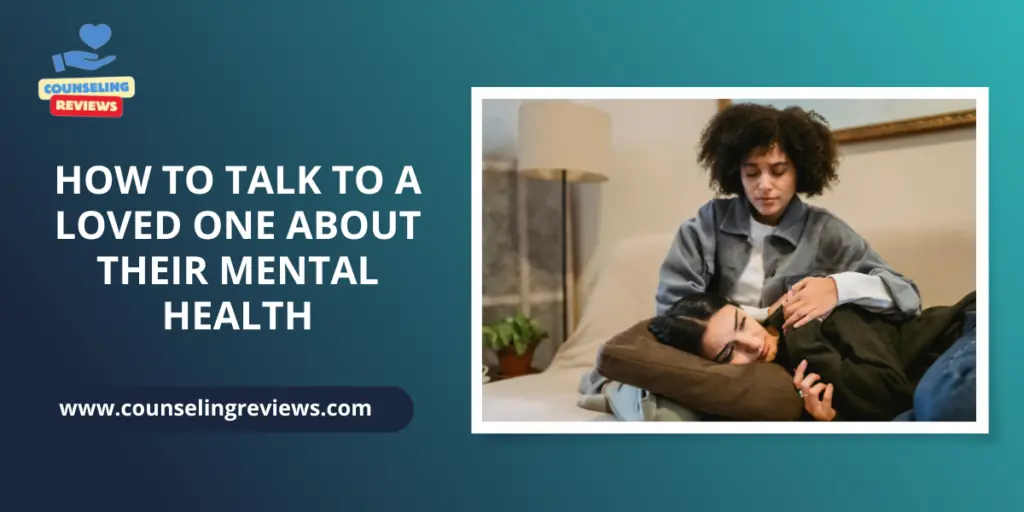If a friend or family member seems to be struggling with their mental health, you’re likely to be concerned. You want to help, but you may not know what to say. You might be worried that you’ll upset them, but you also know that saying nothing could cause the problem to get worse.
When a loved one shows signs of a mental health problem, they would probably benefit from your support. Knowing how to approach the conversation is the first step in talking to them about their mental health.
Recognizing Signs of Mental Health Concerns
Before you have a conversation with your loved one, it’s helpful if you know some of the warning signs of mental health concerns. There are several different types of mental health problems, each with their own set of symptoms. However, there are some general signs that can point toward a mental health disorder.
These include:
- Extreme changes to sleeping habits, such as sleeping much more than usual
- Noticeable changes in eating habits, which could include eating more or less than usual
- Failing to care for personal hygiene
- Changes in mood, like appearing depressed or irritable or having rapid mood swings
- Withdrawing from social interaction or participation in usual activities
- Struggling to function in important life areas, such as at work or school
- Showing difficulty with memory or logical thinking
- Speaking in a way that doesn’t make sense
- Showing sensitivity to sights, sounds, and touches (ie: becoming upset when touched, avoiding bright lights, or showing anger in reaction to loud sounds)
- Appearing apathetic and disconnected
- Showing illogical thinking patterns, such as believing they have the ability to control people or events
- Struggling to get along with others at work or school
- Appearing extremely nervous and on edge
If a loved one shows several of these signs, they may have a mental health condition that would benefit from treatment.
Initiating the Conversation (Talking to a Friend)

Talking to a friend about mental health isn’t always easy, but you can start a conversation using these tips:
- Choose a time when your friend is calm, and be sure that you have time for an uninterrupted conversation.
- Start by telling your friend that you care about them and are concerned for their wellbeing.
- Be prepared to give specific examples of your concerns, such as the fact that you’ve noticed they haven’t been coming out to usual social outings and seem to be feeling down.
- Tell them that you want to help, and encourage them to seek treatment.
Initiating the Conversation (Talking to a Family Member)
Speaking with a family member about their mental health may come more naturally, as boundaries within families tend to be more open than boundaries between friends. Nonetheless, it’s not always easy to start the conversation.

Similarly to how you would address the issue with a friend, choose a time when your family member is calm and able to have an uninterrupted conversation.
You might point out the following concerns during the conversation:
- Your worry for the loved one’s well-being
- Specific changes in behavior you’ve noticed
- How the loved one’s mental health is affecting the family
After the conversion, encourage your family member to seek treatment. It can be helpful if you come to the conversation, prepared with a list of places they can contact for an appointment.
Active Listening and Empathy
When you have a conversation about a loved one’s mental health, it’s important to approach the conversation with empathy. Remember, your loved one is likely struggling, so it’s important to be nonjudgmental and show that you understand they are having a difficult time.
Being empathetic also means actively listening to your loved one. Give them a chance to talk and express their own concerns, and ask questions to ensure you understand where they’re coming from during the conversation.
Effective Communication Tips
Your conversation with your loved one will be more effective if you use healthy communication strategies. Remember to listen without interrupting, and be sure to avoid blaming your loved one for their mental health problems.
Some other helpful communication tips include:
- Treat your loved one with respect, even if some of their behavior is upsetting.
- Ensure that your loved one feels comfortable during the conversation.
- If your loved one becomes upset, or the conversation becomes too heated, offer to take a break and revisit the topic later.
- Offer the person a chance to share their feelings with you; if they aren’t comfortable, ask if they might be willing to talk with another friend or family member.
- Be direct with your communication, and share specific reasons you’re concerned.
Offering Support and Encouragement
Be sure to offer support and encouragement during the conversation. It’s helpful if you remind your loved one that there is treatment available for mental health disorders. Assure them that you’ll be there to talk if they need support, and offer to help them with chores and other tasks to lighten their load until they start to feel like themselves again.
Seeking Professional Help – Online Therapy Options
If a loved one has a mental health disorder, treatment can help. One of the best things you can do is encourage them to seek professional treatment. You could help them to locate treatment near them, or go with them to an appointment as a source of support.
Mental health disorders are often treated with talk therapy. While many therapists work in a physical office or clinic, online therapy has become more popular over the last few years. Online therapy options allow a person to connect with a therapist virtually, using technology like video conferencing and online chatting.
Online therapy can make mental health treatment more accessible. Consider this option for a loved one who is struggling with their mental health.
Conclusion
A friend or relative who has a mental health problem will show some behavior changes, such as sleeping and eating more or less than usual, having a difficult time functioning in their job, withdrawing from usual activities, and demonstrating mood changes. When you notice these changes, it’s natural to want to help. Having a conversation in which you kindly express your concerns and listen without judgment can encourage your loved one to seek treatment.





